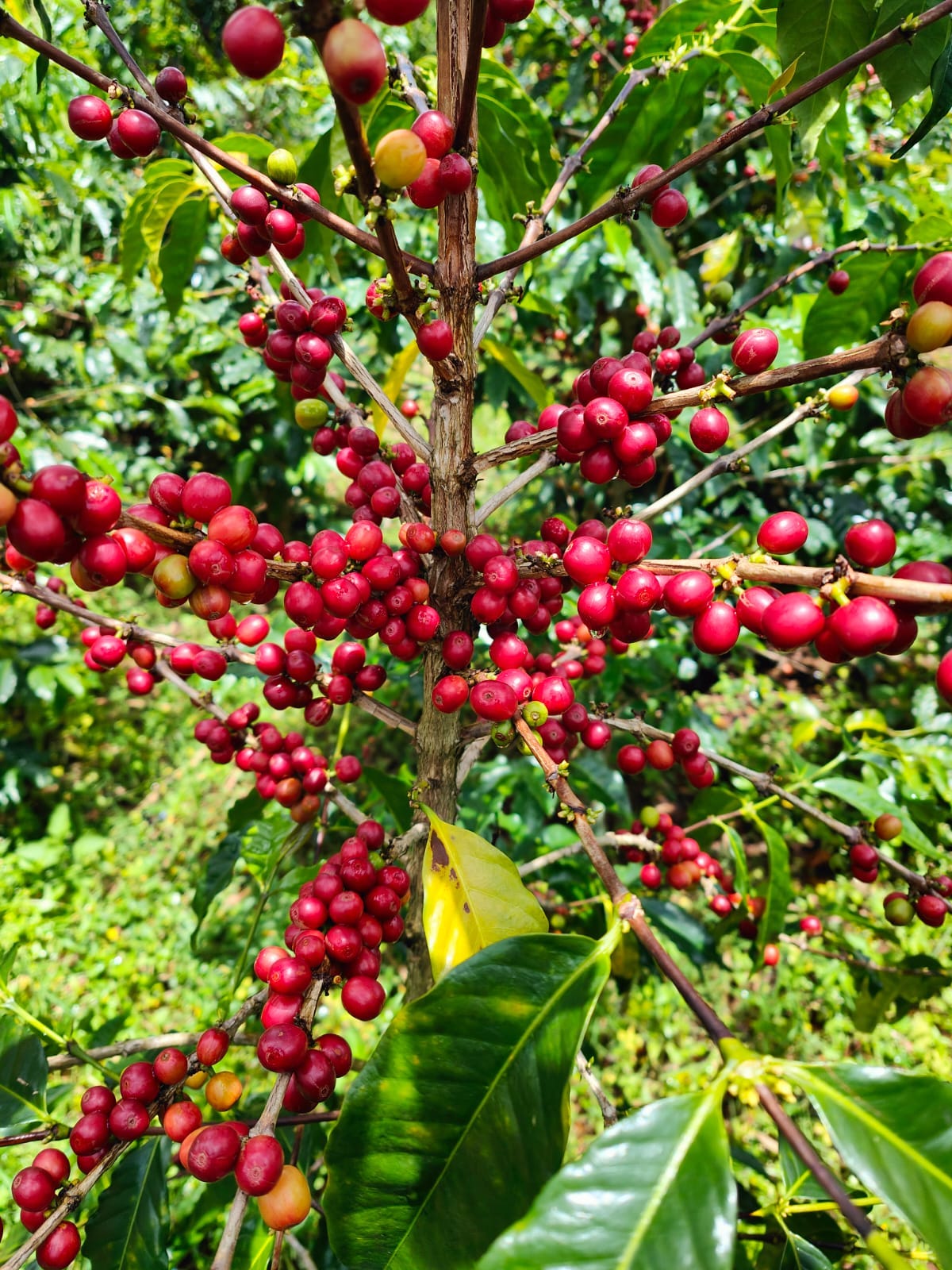
Ethiopia
MASL - 1900-2200
Usual processing methods - Washed, Natural
Ethiopia has pretty much legendary status in the speciality coffee world as the birthplace of arabica coffee. Unlike many other growing regions where coffee was introduced as a commodity crop, in Ethiopia arabica grows wild and in gardens. In many Ethiopian homes coffee plays a central role in important family and community events. Coffee cherries are picked from the family’s trees, the beans removed from the fruit, then roasted in a large pan over an open fire. The beans are ground and brewed in a special pottery vessel with a spherical base and a long neck for pouring. This ceremony is usually performed by a woman of the household and it is considered an honour to preside over it.
It’s not only the rich cultural heritage that makes Ethiopian coffee so popular among speciality coffee fans. It’s invariably delicious with complex, interesting flavour profiles usually showcasing bright, citrus driven acidity. Often Ethiopian coffees are almost tea-like in their delicacy and make really beautiful filter coffees.
Natural processing is usual in regions where there is little rain. It’s the oldest method of green coffee preparation and doesn’t require much in the way of large, expensive machinery. It is, however, very labour intensive. Picking coffee is always done by hand, at this scale, as cherries ripen at different times, even on the same branch. Natural processing involves laying the cherries out in the sun so the fruit ferments on the bean. The cherries must be carefully watched and turned to ensure consistent drying and to pick out any defective or rotten fruit. Every stage requires this level of hands-on work and results in delicious, super-flavourful, bright coffees.
The Ethiopian coffees we buy are grown by smallholders either contributing to a cooperative or bringing their crop to a shared washing station. With the scale that most of these small, family businesses are growing on, accessing the world market would not be possible without adding their crops together with other local farmers.
The washing station is where all the cherries are brought, weighed, checked for quality and defects then processed. Working together means, not only, that farmers can access the international market but at the local level, jobs are created and enduring businesses built.
Typically, Ethiopian smallholders do not use fertilizers and insecticides as they don't have access to them. While these coffees are not always certified as organic, because of the administrative and monetary burden of certification, more often than not, they are.
We buy this coffee via Cafe Imports who have been building relationships with a variety of Ethiopian coffee industry stakeholders - from local export companies to individual farmers - for years. They have seen many changes over the course of their work with Ethiopian coffee farmers including, in 2017, the Ethiopian Commodity Exchange voting to allow direct sales from individual washing stations. This has continued to improve traceability and allowed Cafe Imports to forge stronger connections with the individuals growing and processing coffee. As trust is built on both sides, farmers and washing stations are more willing to experiment with processing methods, confident in the knowledge that customers are there for them.

Baristocracy Coffee
ETHIOPIA
Share


